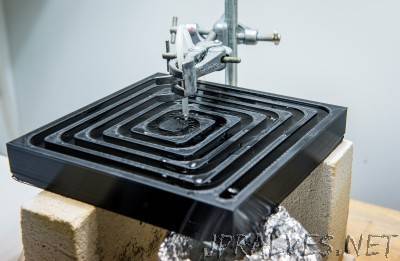
“A multi-disciplinary research project at the University of Bath hopes to develop an efficient, portable and low cost continuous treatment system for contaminated drinking water for poor rural communities in developing countries. The research team want to produce safe, clean drinking water for poor rural communities who don’t have access to a centralised water supply. The researchers are using 3D printing to generate rapid prototypes and test them using a unique indoor solar light that can replicate pure sunlight in the lab. This testing will enable a better understanding of the optimal design of this household water treatment (HWT) system to most efficiently produce safe drinking water.”
